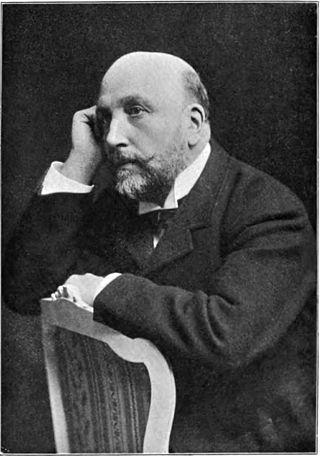
The Bournemouth Symphony Orchestra (BSO) is an English orchestra, founded in 1893 and originally based in Bournemouth. With a remit to serve the South and South West of England, the BSO is administratively based in the adjacent town of Poole, since 1979. The orchestra is resident at Lighthouse in Poole, with other major concert series given at Portsmouth Guildhall, the Great Hall of Exeter University and Bristol Beacon. Shorter series are also given in Bournemouth and Basingstoke.

Ex Cathedra is a leading British choir and early music ensemble based in Birmingham in the West Midlands, England. It performs choral music spanning the 15th to 21st centuries, and regularly commissions new works.

Sir Neville Marriner, was an English conductor and violinist. Described as "one of the world's greatest conductors", Gramophone lists Marriner as one of the 50 greatest conductors and another compilation ranks Marriner #14 of the 18 "Greatest and Most Famous Conductors of All Time". He founded the Academy of St Martin in the Fields, and his partnership with them is the most recorded of any orchestra and conductor.

Sir Alexander Campbell Mackenzie KCVO was a Scottish composer, conductor and teacher best known for his oratorios, violin and piano pieces, Scottish folk music and works for the stage.
Adrian Brown is a British conductor. He is a proponent of contemporary music and has several first performances to his credit.
Thomas Andrew Trotter is an English concert organist. He is Birmingham City Organist, organist of St Margaret's, Westminster, visiting Fellow in Organ Studies in the Royal Northern College of Music and president of St Albans International Organ Festival.
David John Briggs is an English organist and composer.
The CBSO Chorus is a chorus based in Birmingham, England.

Rainer Hersch is a British conductor, actor, writer and comedian known for his comical take on classical music. He has toured in more than 30 countries and has broadcast extensively, principally for the BBC. His radio series include All Classical Music Explained ; Rainer Hersch's 20th Century Retrospective and All the Right Notes, Not Necessarily in the Right Order.

The Metropolitan Cathedral Church of St David, also known as St David's Cathedral, Cardiff, is a Catholic cathedral in the city centre of Cardiff, Wales, and is the centre of the Archdiocese of Cardiff.
Michael Seal is a British orchestral conductor and classical violinist. Since 2011 he has served as the Associate Conductor of the City of Birmingham Symphony Orchestra (CBSO), having served previously as the orchestra's Assistant Conductor. He is only the second conductor to be given the title of Associate Conductor at the CBSO. The first was Harold Gray who served in that capacity for several decades until his retirement in 1972. In addition to his conducting, Seal played in the violin section of the CBSO from 1992 to 2014.
The National Youth Orchestra of Wales is the national youth orchestra of Wales, based in Cardiff. Founded in 1945, it is the longest-standing national youth orchestra in the world.
The Cardiff Philharmonic Orchestra (CPO) is an amateur philharmonic orchestra based in Cardiff, Wales. The CPO played its first concert in 1982 and subsequently played over 250 concerts, primarily in Wales but also in England, Switzerland, and France. The CPO has a wide repertoire and appears regularly at Wales' premier concert hall, St. David's Hall.
The Philharmonia Chorus is an independent self-governing symphony chorus based in London, UK. Since its foundation in 1957 the Chorus has given over 900 concerts and made over 100 recordings. The Chorus Master is Gavin Carr.
Robert Wysome was the conductor of New College Chorale based in Wellington, Shropshire, Conductor of the Shropshire Youth Orchestra, Musical Director for the Shropshire Music Service and a notable pianist and organist. He was born in South Wales and began his musical career as an organist and accompanist. He read music at Cardiff University where he studied composition with Alun Hoddinott CBE and organ with Robert Joyce at Llandaff Cathedral. He was organist at St. John the Baptist Church in Cardiff for several years before moving to Bristol where he performed widely as a conductor and accompanist, working with Bristol Opera Company, University of Bristol Symphony Orchestra and Bristol Old Vic Theatre Company.
Gordon Brodie Stewart is a British organist, conductor, and teacher.

Ben Parry is a British musician, composer, conductor, singer, arranger and producer. He is the Director of London Voices and was formally Artistic Director of the National Youth Choir.
Classical music in Birmingham began in the late Middle Ages, mainly devotional music which did not survive the Reformation. Evidence is scant until the years following the Restoration of the Monarchy in 1660, when Birmingham's economy boomed. This was reflected in the scientific and cultural awakening known as the Midlands Enlightenment. The first sign of this transformation was the opening of the baroque St Philip's Church in 1715, which had a fine organ that attracted gifted musicians to the town.
Andrew Forbes is a Scottish organist. He is the Director of Music of Glasgow Cathedral and the Artistic Director of Glasgow Cathedral Festival. He is an organist, harpsichordist and conductor as well as a trustee of the Glasgow Society of Organists. In addition to his work at Glasgow Cathedral, he has a freelance career as a soloist and ensemble player, with appearances on BBC TV and radio, and concert performances across Europe at venues including the Philharmonie de Paris. Since 2017 Forbes has taught organ in the junior department of the Royal Conservatoire of Scotland.
Daniel Fardon is a British composer of contemporary classical music.






